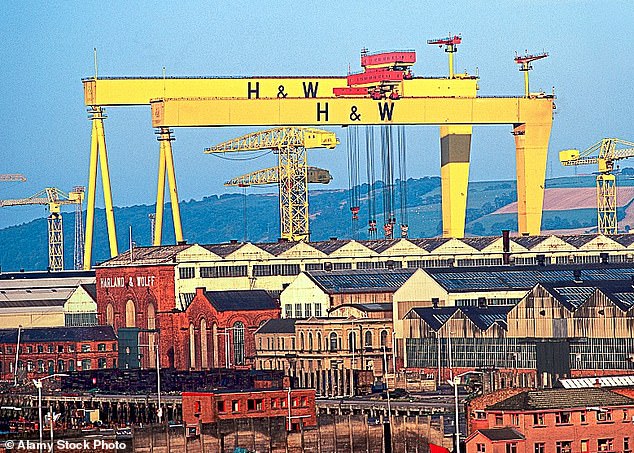Harland & Wolff Saved by Spanish Rival
Spain's Navantia saves iconic Belfast shipyard Harland & Wolff

Harland & Wolff, the iconic shipbuilder known for constructing the Titanic, has been rescued from administration by the Spanish state-owned company Navantia. This acquisition is a significant development for the Belfast-based firm, which faced its second administration in five years. The deal not only secures the future of Harland & Wolff but also protects approximately 1,000 jobs across its shipyards in Belfast, Scotland, and England. This article explores the implications of this acquisition and the future of shipbuilding in the UK.
A Historic Rescue for Harland & Wolff
Harland & Wolff has a storied history in shipbuilding, but recent years have been challenging. The company entered administration in September 2024, marking a critical juncture in its operations. The rescue by Navantia comes after the Spanish firm secured a £1.6 billion contract in 2022 to build three ships for the Royal Navy using Harland & Wolff’s facilities. This contract was pivotal in the negotiations that led to the acquisition.
The UK government played a crucial role in facilitating this deal. They agreed to amend the existing contract with Navantia, which was essential for the Spanish company to proceed with the acquisition. Business Secretary Jonathan Reynolds expressed optimism about this development, stating that it represents a significant vote of confidence in the UK shipbuilding industry. He emphasized that this move would not only secure jobs but also enhance the UK’s sovereign shipbuilding capabilities, which are vital for national defense.
Harland and Wolff’s Future Secured by Spanish State-Owned Company
The acquisition is expected to bolster the local economy and provide a much-needed boost to coastal communities reliant on shipbuilding. With the deal finalized, Harland & Wolff can now focus on revitalizing its operations and meeting the demands of its new contracts.
Implications for the UK Shipbuilding Industry
The acquisition of Harland & Wolff by Navantia has broader implications for the UK shipbuilding sector. It highlights the importance of international partnerships in maintaining and enhancing the UK’s maritime capabilities. The deal ensures that Harland & Wolff can continue to play a vital role in supporting the Royal Navy and other defense initiatives.
Defence Secretary John Healey remarked that this acquisition strengthens the UK’s sovereign capability to support Royal Navy operations worldwide. This is particularly important as the UK seeks to enhance its naval presence and capabilities in an increasingly complex global security environment. The collaboration with Navantia is expected to lead to technological advancements and improved efficiencies in shipbuilding processes.
Furthermore, the deal underscores the significance of government support in the shipbuilding industry. The UK government’s willingness to amend contracts and facilitate foreign investment demonstrates a commitment to preserving and enhancing domestic manufacturing capabilities. As Harland & Wolff embarks on this new chapter, the focus will be on innovation and sustainability, ensuring that the company remains competitive in the global market.
In conclusion, the rescue of Harland & Wolff by Navantia is a pivotal moment for the UK shipbuilding industry. It secures jobs, enhances national defense capabilities, and fosters international collaboration. As the company moves forward, it will be essential to leverage this opportunity to revitalize its operations and contribute to the future of maritime engineering in the UK.
